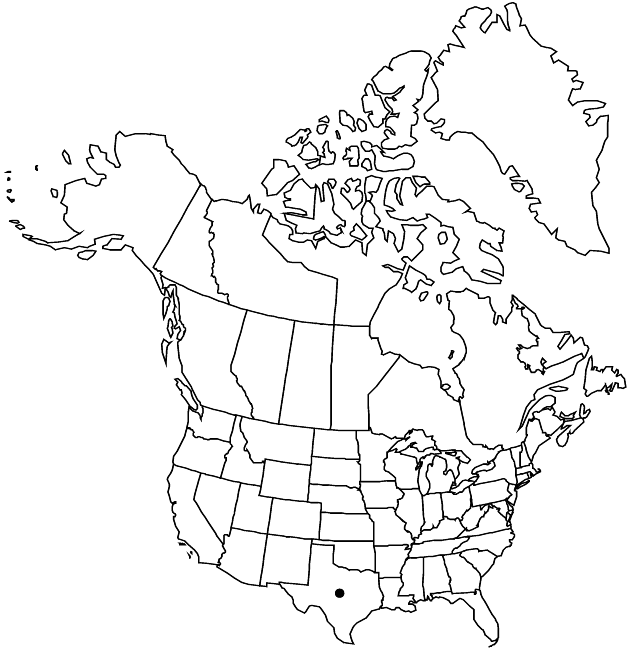Difference between revisions of "Rayjacksonia aurea"
Amer. J. Bot. 83: 369. 1996.
Common names: Houston camphor-daisy
Basionym: Haplopappus aureus A. Gray Mem. Amer. Acad. Arts, n. s. 4: 76. 1849 (as Aplopappus)
Synonyms: Machaeranthera aurea (A. Gray) Shinners
Treatment appears in FNA Volume 20. Treatment on page 438.
FNA>Volume Importer |
FNA>Volume Importer |
||
| Line 8: | Line 8: | ||
}} | }} | ||
|common_names=Houston camphor-daisy | |common_names=Houston camphor-daisy | ||
| − | |basionyms={{Treatment/ID/ | + | |basionyms={{Treatment/ID/Basionym |
|name=Haplopappus aureus | |name=Haplopappus aureus | ||
|authority=A. Gray | |authority=A. Gray | ||
| + | |publication_title=Mem. Amer. Acad. Arts, n. s. | ||
| + | |publication_place=4: 76. 1849 (as Aplopappus) | ||
}} | }} | ||
|synonyms={{Treatment/ID/Synonym | |synonyms={{Treatment/ID/Synonym | ||
| Line 55: | Line 57: | ||
|publication year=1996 | |publication year=1996 | ||
|special status= | |special status= | ||
| − | |source xml=https://jpend@bitbucket.org/aafc-mbb/fna-data-curation.git/src/ | + | |source xml=https://jpend@bitbucket.org/aafc-mbb/fna-data-curation.git/src/f6b125a955440c0872999024f038d74684f65921/coarse_grained_fna_xml/V19-20-21/V20_1002.xml |
|tribe=Asteraceae tribe Astereae | |tribe=Asteraceae tribe Astereae | ||
|genus=Rayjacksonia | |genus=Rayjacksonia | ||
Revision as of 19:39, 24 September 2019
Annuals, 20–100 cm, herbaceous. Leaf blades linear to linear-oblanceolate, mid-cauline 1–3(–4) mm wide. Heads on short, sometimes bracteate peduncles, not surpassed by distal leaves. Involucres 4–7 × 10–15 mm. Phyllaries in 4–5 series, tightly appressed, strongly unequal, apices erect to slightly spreading, ca. 1 mm wide, herbaceous. Ray florets 14–19; corollas 6.5–9.5 mm. Disc florets: corolla tubes ± equaling limbs. 2n = 12.
Phenology: Flowering Oct–Nov(–Dec).
Habitat: Sand or sandy loam, fields, pastures, usually relatively bare sites
Elevation: 0–10 m
Discussion
Of conservation concern.
Rayjacksonia aurea is now restricted to a few, small populations in the vicinity of Houston. It is in the Center for Plant Conservation’s National Collection of Endangered Plants.
Selected References
None.
Lower Taxa
None.
